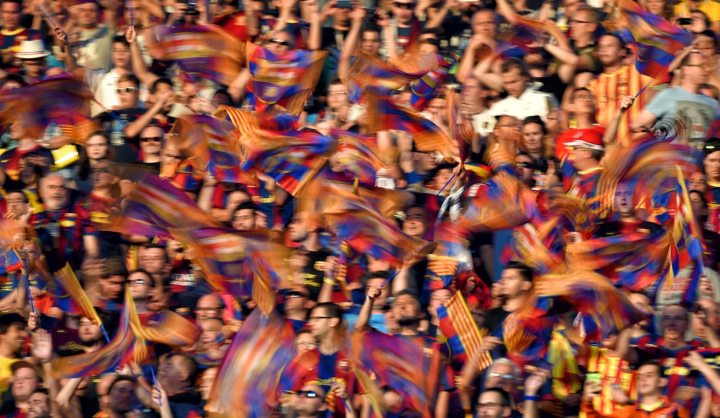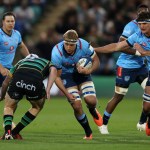Fan engagement means so much more than merely rolling out a colourful banner. Building positive brand equity could prove the difference between a successful season and another mediocre one. By DANIEL GALLAN for CONQA Sport.
This article first appeared on conqasport.com and has been republished with permission.
In 2002, the Seattle Seahawks were not the team they are today. They had never been to the Super Bowl, they had never been conference champions, and had never given their massive fan-base something to latch on to in the form of on-field success.
Paul Allen, Seahawks owner and co-founder of Microsoft, realised that his team had a horde of loyal supporters who wanted to feel they contribute to the on-field success of their team – the Seahawks are the only National Football League (NFL) franchise in the United States’ Pacific North West and draw support from a wide geographical region. What was needed was a way to tap into that potential to create something tangible.
Enter one of the most brilliant marketing campaigns in professional sport: the “12th Man”.
Seahawks fans, whether they’re packed into the 69,000-capacity CenturyLink Field or watching as far away as Alaska or British Columbia, are made to feel as if they are a part of the team. The 11 helmeted men might be doing the heavy lifting on the field, but there is an extra entity that now helps drive this franchise.
Since the 12th Man campaign was launched in 2003, the Seahawks have been one of the most feared teams in the NFL. They have played in three Super Bowls, winning for the first time in their history in 2013. They have also won three NFC Championships and seven Divisional Playoffs in 13 years. Success is multidimensional, but it would be negligent to downplay the significance of this particular variable.
Steve Gera, an elite sports consultant and professor, who has worked in the NFL with the Cleveland Browns and San Diego Chargers, as well as La Liga giants Real Madrid CF and the Philadelphia 76ers in the National Basketball Association (NBA), has been on the opposition bench at CenturyLink Field and fully believes that something special is going on in Seattle.
“I’ve been there and it’s an incredibly hostile environment. They make it difficult for opposing players to hear each other on the field,” Gera says. “The 12th man narrative that permeates throughout the organisation is honestly a massive competitive advantage. Not many franchises can match the Seahawks when it comes to fan engagement.”
That is because each fan is made to feel like a stakeholder and in some way responsible for what happens on the field. Seahawks fans are told that they are not simply spectators, but participants actively involved in the success or failure of the team. That engagement encourages a conversation between the fans and the franchise.
Each conversation will vary from team to team but the driving force around this dialogue will be the same – engaging fans in a meaningful way. Fan engagement drives brand equity which has an impact on everything that surrounds a team’s success.
For starters, a positive brand surrounding an organisation ensures a loyal fan base that sticks with their team during difficult periods. If a team’s identity is solely based around on-field success then a poor run of form will be terminal to fan engagement.
Fans want to win, but more important, they want to feel like they belong to something. As Gera says, “Above all else, fans want to know that the athletes representing them are shepherds of their community.”
New Zealand’s All Blacks are perhaps the best example of this. New Zealand is a small country on the edge of most world maps with a population of roughly 4.5-million. However, they have churned out the most dominant elite sports team on the planet and have done so with a unified philosophy that can be felt throughout the nation. Through intelligent social media campaigns and engaging content, the All Blacks have come to represent an entire sport. No other team on the planet, in any sport, can match them.
For Luke Bodensteiner, Executive Vice President for the United States Ski and Snowboard Association (USSA), a positive image is imperative to the survival of his organisation.
“We live and die financially through the support of the American people,” he says. “Winning is important but we need to give our supporters something more that drives them to give back to us.”
The USSA rely heavily on crowd-funding and sponsorships as they do not pay their athletes a salary. Therefore, a positive brand represented by role-models and likeable athletes is crucial for the survival and success of the organisation.
Intelligent fan engagement and positive brand equity is most felt in the ledger books of any elite sports organisation. More fans and sponsors equal more money. More money means access to better players and coaches, improved training facilities, back-room staff, and a host of other benefits that directly impact on-field performance.
Sport is a business and each team needs to make a substantial profit or else it will stagnate and then degenerate. As Bodensteiner says, “If you fail financially, you’ll fail on the field.”
Economic growth is not the only benefit of a loyal fan base. Through positive brand equity and subsequent fan engagement, owners and managers can focus on long-term success rather the grind of weekend to weekend results.
Loyal fans tell the players and coaching staff that it is okay to lose a few matches and even have a poor season. What they want is to know that there is at least the aim to improve. This is impossible if the brand surrounding the team is not supported.
Patience is not a virtue that many sports fans possess but it is one that must be conveyed from the organisation. This is easier to achieve in national teams as opposed to clubs or franchises as the cycles in which they operate can span several years. For Bodensteiner and the USSA, late 2016 is a year without a World Championship or an Olympic Games on the horizon. Therefore, they are able to implement strategies that have long-term benefits but might negatively impact short-term performance.
“This would not be possible without strong brand equity,” Bodensteiner says. If USSA fans and supporters did not feel as positively as they do about the organisation, one unglamorous season could unravel years of support. This pressure can drive an organisation to make decisions that could undermine long-term success. Plastering over cracks only gives the illusion of repair.
Many football clubs in particular feel the pressure of having to be successful year after year without a focus on the future. Whether this feeling comes from pressure from the fans or from the club itself, it is a toxic environment for brand equity and can result in supporters whose loyalty is superficial. “Fair weather fans” – supporters who only back their team during periods of success – are the result of poor brand equity and fan engagement.
So how is positive brand equity achieved if winning is not the only criterion? As mentioned before, it is through fan engagement, which is achieved by having a conversation with the fans. However, each community is different and will want a different conversation with the team they support. This is why, according to Gera, understanding your own identity is the first, but most difficult, step towards achieving positive brand equity.
“You have to have a very good sense of who you are engaging with before you create a campaign to engage with them,” Gera says “Very few communities represent one ideology and one ideology only and it takes a lot of research to uncover the nuances of each community. It is a step that a lot of research teams simply skip.”
That is where most teams fail. It is impossible to engage genuinely with fans without knowing exactly what the community who supports you wants. FC Barcelona is a fantastic example of a team that gets this right, and they have done so through a simple slogan that encapsulates the ethos of the people they represent. “Més Que Un Club” / “More Than A Club” screams Catalonian pride.
USSA have done the same with a slogan of their own and Bodensteiner believes it has given supporters and sponsors an identity to coalesce around. “The Best in the World” is a mantra that the organisation echoes from top to bottom.
“Firstly, the slogan is meant to be a source of motivation and not declarative fact,” Bodensteiner explains. “It is aspirational. The scorecard resets every year but it tells our fans that this is the goal we want to set. That resonates with the American public. It leads everyone in the organisation down a path where we have to strive to be the best in the world. If we fall short, and come second or third, that’s fine, but the goal is clearly stated and people can get behind that.”
Whatever identity an organisation adopts, it has to be stated clearly and it has to be carried throughout the organisation.
The economic benefits of positive brand equity have a knock-on effect on the rest of an organisation as more resources bring obvious benefits. However, apart from finances, the link between positive brand equity and fan engagement to on-field performance remains anecdotal.
Both Gera and Bodensteiner report that athletes make reference to improved performance when fans are behind them, but those positive feelings are abstract. There is a scientific model that can be replicated.
For Gera, finding this formula would represent the Holy Grail but he is confident it will happen one day: “We’re close but we’re not there yet.”
Fan engagement is all about sharing a story with the individuals who support you. Evoking feelings like nostalgia, pride in history and a sense of community all encourage fan engagement. Strong brand equity allows an organisation to withstand periods of poor results while still driving revenue in order to rectify the situation and alleviate pressure on those responsible for turning things around. Not every team does it well, but all champion teams do it better than the rest. DM
Photo: Fans of Barcelona wave flags prior to the the UEFA Champions League final soccer match between Juventus FC and FC Barcelona at Olympic Stadium in Berlin, Germany, 06 June 2015. EPA/MARCUS BRANDT




















 Become an Insider
Become an Insider